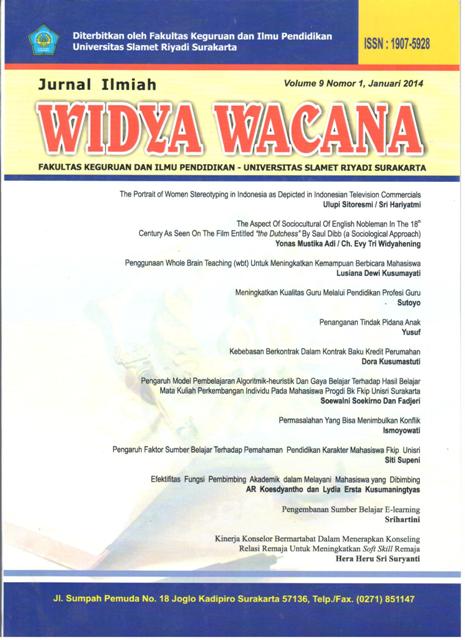PENANGANAN TINDAK PIDANA ANAK
DOI:
https://doi.org/10.33061/ww.v9i1.948Abstract
Studies on child crime are intended to examine the handling of the crime of theft by children in the perspective of UU No. 11, 2012, the barriers and the solutions.
The method used in this study, is qualitative descriptive. The data collection techniques is using documents and literature studies.
Criminal cases done by children, tried by District Court Judge Surakarta, are already appropriate with legal procedures, based on UU No.11 Year 2012 on Juvenile Justice and Criminal Code, which is heard by the judge children. Judges, prosecutors and lawyers do not wear a toga; heard by a single judge, except with certain considerations, the Chairman of the District Court may set an examination by the panel of judges; submitted a report before the trial opened community mentors ; trial was held behind closed doors ; defendant was sidelined parents , advisors legal and social counselors ; Witnesses may be heard in absentia. Judge attitude before dropping a decision to give an opportunity to the parents, guardians or foster parents to provide information useful for children. Decision is made in a hearing open to the public. In the trials, obstacles in dealing with such cases is not the presence of a parent, guardian, or foster parent in proceedings; they are no longer able to accept and educating the accused. The judges in the face of a parent or guardi guardians, parents' enemy is not present, then the judges, new inspection process against the accused without the presence of a parent, guardian, or foster parent accused.
Â
Keywords : Crime, child crime, Juvelile justice



